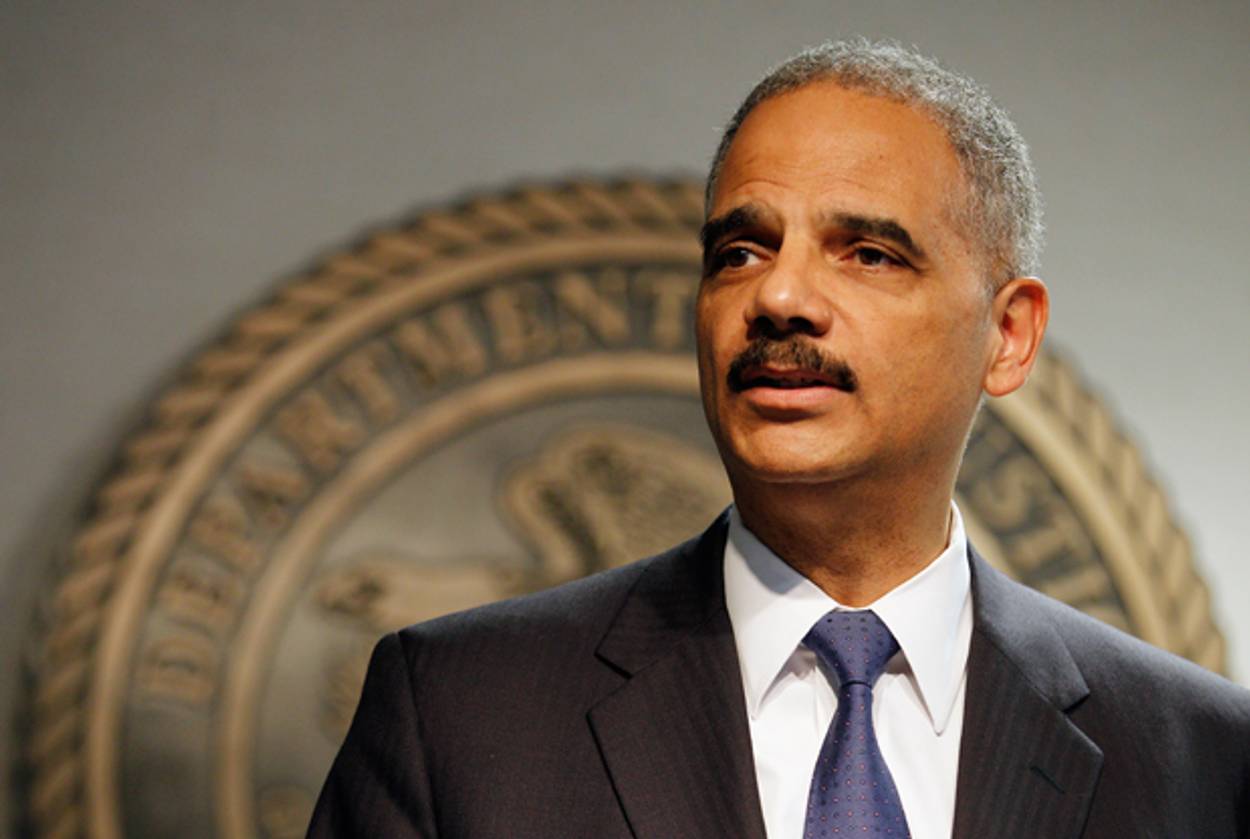On the Outrageous AP Seizures
We can all agree: The Obama Administration’s assaults on the First Amendment are abhorrent—and must stop




In a move that First Amendment lawyers and advocates call a sweeping and unprecedented assault on press freedom, the Justice Department has secretly seized two months of telephone records belonging to reporters and editors for the Associated Press, apparently in an effort to discover who leaked classified information to reporters about a foiled al-Qaida plot last year in Yemen.
The AP disclosed Monday that the Justice Department had informed the news organization that, as part of a criminal investigation, the government had secretly obtained its phone records. The AP says that the government obtained records of all incoming and outgoing calls for five reporters—Pulitzer Prize-winners Adam Goldman and Matt Apuzzo, Kimberly Dozier, Eileen Sullivan, and Alan Fram—editor Ted Bridis; the general AP office numbers in New York, Washington, D.C., and Hartford, Connecticut; and AP reporters in the House of Representatives press gallery—more than 20 separate telephone lines in all—for the months of April and May of 2012.
As a reporter who has tangled repeatedly with government prosecutors seeking information about my sources, I know all too well what a chilling effect such government requests for records can have not only on sources, but on journalists themselves and our news organizations. In 2006, the New York Times and I lost a protracted legal battle to protect my own telephone records. A federal prosecutor was investigating who had leaked information to me and my colleague Philip Shenon about actions the government was planning to take against two Islamic charities suspected of providing material support for terrorism. A district court had sided with us in the name of preserving the free flow of information and a free and independent press. But a Federal appeals court ruled against us. We lost, 2 to 1. The records were turned over.
The massive record seizure without prior notice prompted the AP to write a fierce complaint to Attorney General Eric Holder. “I am writing to object in the strongest possible terms to a massive and unprecedented intrusion by the Department of Justice into the newsgathering activities of The Associated Press,” wrote Gary Pruitt, the AP’s president and Chief Executive Officer, in a letter the organization posted on its website Monday night. He asserted that the government’s action could “potentially reveal communications with confidential sources, … provide a road map to AP’s newsgathering operations, and disclose information about AP’s activities and operations that the government has no conceivable right to know.” He added that the government had seized reporters’ home phone and cell phone records as well.
Gregg P. Leslie, the legal defense director for the Reporters Committee for Freedom of the Press, called both scope of the Justice Department’s latest seizure and its explanation “outrageous.” He told me that the Justice Department guidelines have for 30 years required the government to negotiate first with news organizations for such records and to issue a subpoena only if a news organization refuses to comply. “How could the integrity of the investigation be compromised,” he asked, “when the leak they are investigating has already occurred?” Leslie added that his organization is drafting a letter of protest that will be sent to the Justice Department on Tuesday.
The government’s seizure of home, cell phone, and work phone records from AP reporters and staff appears to be in accordance with a broader legal theory that the Obama Administration has spelled out in court, which holds that reporters do not have the right to protect confidential sources in leak investigations. In a case brought before the Fourth Circuit Court of Appeals, Department of Justice appellate lawyer Robert A. Parker argued that New York Times reporter James Risen should be forced to testify in the trial of former CIA agent Jeffrey Sterling, who was charged with leaking classified information about a botched plot against the Iranian government. When Judge Robert Gregory asked Parker to explain why the public’s interest in a free press was not applicable in this case, Parker declined to answer, stating, “I don’t think there would be a balancing test because there’s no privilege in the first place.” Risen’s conversations with his source, Parker argued, were the equivalent of the journalist receiving illegal drugs and refusing to testify about it.
Judge Gregory was not convinced by the Department of Justice’s argument. “The beneficiary of the privilege is the public,” Gregory said. “We need to know what the government is doing.”
Yet the Administration appears to be equally confident in its own interpretation of the law, which has little precedent in the history of modern First Amendment jurisprudence. As a journalist, and as a citizen, I agree with Judge Gregory. The Justice Department’s behavior, and the theory that seems to underlie that behavior, represent an outrageous attack on the First Amendment freedoms that are essential to American democracy. I may differ with the AP’s coverage of the NYPD, as plenty of reporters differed with my coverage leading up to the Iraq War. But on the question of a reporter’s basic right to do their job in the public interest without the undue interference of government snoops, I stand with them wholeheartedly and without the slightest reservation.
***
Like this article? Sign up for our Daily Digest to get Tablet Magazine’s new content in your inbox each morning.
Judith Miller, Tablet Magazine’s theater critic, is the author of the memoir The Story: A Reporter’s Journey.
Judith Miller, Tablet Magazine’s theater critic, is a former New York Times Cairo bureau chief and investigative reporter. She is also the author of the memoir The Story: A Reporter’s Journey.